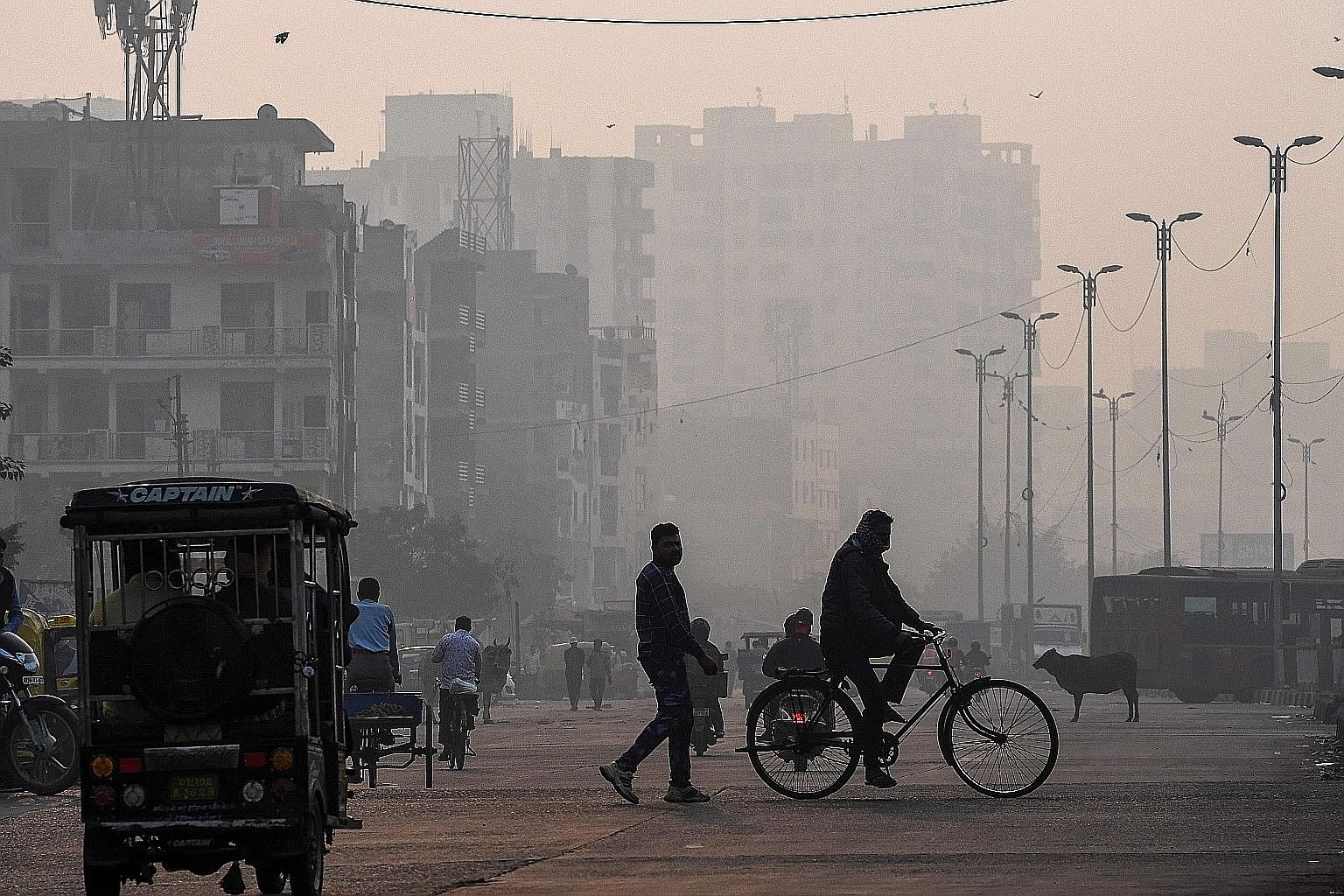CHENNAI/NEW DELHI • Hundreds of millions of Indians in north India woke up yesterday to toxic air following Deepavali, the Hindu festival of lights, after many revellers defied bans on using firecrackers to celebrate the event.
The capital New Delhi was blanketed in a thick haze, with the average pollution level over nine times what is considered safe by the World Health Organisation.
Delhi's Chief Minister Arvind Kejriwal had banned the use and sale of firecrackers ahead of Deepavali, but the policy has been difficult to implement.
Revellers in the capital let off huge amounts of fireworks well into yesterday morning, prompting angry residents and environmentalists to complain on social media of breathing difficulties and stinging eyes.
"Our gods must be so happy today, that their followers burst firecrackers and choked the young ones to despair and death," said Mr Vimlendu Jha, the founder of non-profit environmental group Swechha.
Some defended firecrackers as an essential part of a religious tradition celebrated by millions across the country.
"Are you realising how all of India, all places stood up in defiance against the cracker ban? It's like a form of Hindu-freedom battle cry," Mr Tarun Vijay, a leader of Prime Minister Narendra Modi's Bharatiya Janata Party, tweeted.
New Delhi's air pollution typically worsens in October and November because of farmers who burn agricultural waste, coal-fired power plants, congested traffic and windless days.
The raging coronavirus epidemic, with more than 400,000 cases in the city of 20 million people, has also heightened alarm over the smog. Doctors have warned of a sharp increase in respiratory illnesses.

The metropolis has been recording higher-than-usual daily rises in new cases, and reported 7,340 fresh infections late last Saturday. Chief Minister Kejriwal was expected to meet national Home Minister Amit Shah later yesterday to ask for more hospital beds to cope with the spike, local media reported.
India's Covid-19 tally stood at more than 8.8 million yesterday as over 41,000 new daily cases were registered. The death toll nationwide totalled 129,635, according to the health ministry.
Meanwhile, besides New Delhi, cities in the states of Punjab, Uttar Pradesh, Haryana and Bihar - which have already been suffering from some of the worst air in the world - saw even higher levels of pollution than on the morning after Deepavali last year, government data analysed by Reuters showed.
An average of air quality indices measured at different places within the major cities in these states was higher than last year, according to data from the Central Pollution Control Board.
REUTERS, XINHUA
